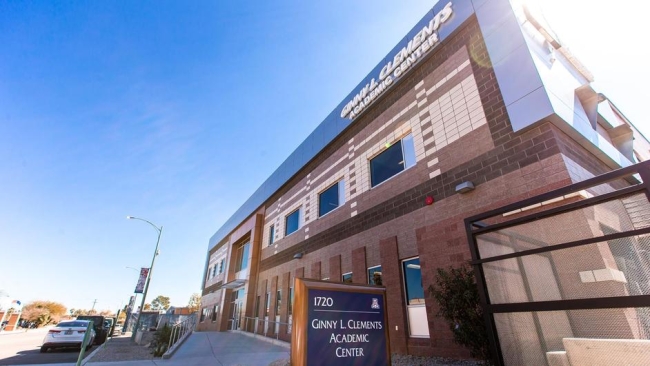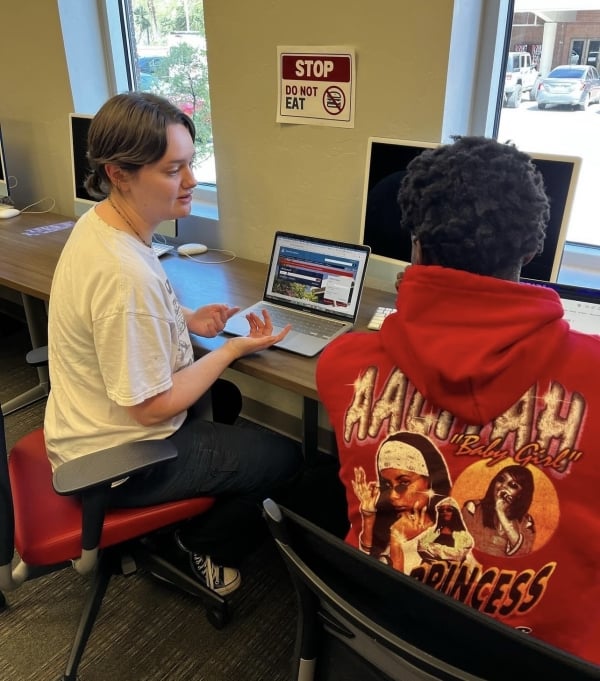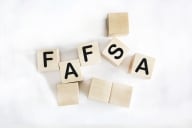You have /5 articles left.
Sign up for a free account or log in.

The University of Arizona CATS Academic program partnered with library staff to provide personalized, embedded support to student athletes on campus.
University of Arizona
For many students, the biggest barrier to accessing support resources is not knowing that the services exist. A July 2023 study by Tyton Partners found 60 percent of students are not aware of the full scope of offerings at their institution, limiting their ability to receive help from campus partners.
At the University of Arizona, staff working alongside student athletes wanted to better their reading and writing skills, so they established a strategic partnership with campus librarians to increase awareness and usage of supports.
Since launching the initiative in 2021, staff have seen hundreds of student athletes engage with research and writing tutors, helping them achieve regular academic goals.
The background: Arizona’s 500 or so student athletes receive wraparound holistic support from a team called CATS, which stands for commitment to an athlete’s total success, and is a play on the team’s mascot, the Wildcat.
CATS Academics is the curricula-focused arm of the team, helping provide supports, alongside the Student Success and Retention Innovation teams.
In the past, CATS Academics had a writing program within their facility (which is also home to study spaces and spaces for advising) that focused on helping students put together essays for class, but more recently, staff realized students didn’t have as many challenges with writing as they did with research and understanding course materials, explains Marisol Quiroz, director of CATS academics and assistant athletic director.
To respond to this need, Mary Hartman, a senior learning specialist in CATS, led a team to reimagine the program as a literacy lab, focused more on reading and writing support in appointments.
There was still a need for research help though, so Hartman partnered with Paula Johnson, an associate librarian for student learning and engagement and Beth Reese, research and learning assistant, to make athletes familiar with library staff and services.
“We recognized that our students were not utilizing those services or didn’t know much about it, and so it was just, ‘Let’s give them an introduction to what the library provides and all of the resources they have,’” Hartman says.
How it works:Several years ago, Hartman took a group of athletes on a “field trip” to the library over the summer to tour the facility, which had recently undergone a transformation, and learn how to navigate the library website.
“Our trip to the library was critical,” Hartman says, both in making students more comfortable with using the library but also in finding which resources they need.
The field trip evolved into a more consistent partnership in which CATS hosted peer tutors, called PICS (peer information counselors), and graduate assistants to offer regular tutoring hours at CATS Academics’ facilities in order to support athletes with their writing.
To do so, Hartman and Johnson coordinated schedules to understand what times would be most impactful for the athletes and then assigned PICs to work at the facility for the term or academic year.
“It can get a little tricky, kind of like a puzzle, piecing things together,” Hartman says. “But it’s gone really well, and we’ve been able to work through that.”
From there, the staff establishes regular service hours and posts them for student athletes to drop in as they need support.

A peer tutor works with a student athlete, helping the student become familiar with the library website, proper citation and research writing.
Mary Hartman/University of Arizona
The PIC serves as a library ambassador, highlighting what structures and services are on campus, but also as a research tutor, to build up their classmates’ analytical and informational skills. The PICs vary sometimes based on availability, but in a typical year, CATS will have four or so dedicated tutors for the athletes.
The impact: During fall 2023, CATS had 13 weeks of tutoring support, with an average of eight hours per week served by PICs and graduate assistants, with a total of 756 student appointments scheduled in study hall or literacy lab. One graduate assistant also developed three, one-hour help sessions for a general education course undertaken by many athletes to provide additional research support.
In spring 2024, the center offered four hours a week and held 260 or so student appointments. An additional two help sessions were provided for the same general education course.
One of the program’s goals is to be proactive in connecting students with support, which staff say has been true of the program. Anecdotally, students share they’re more likely to use library facilities, more comfortable navigating the website and know where to turn when they do have big projects or essays on the horizon.
“I think the students recognize the importance of the support and that it’s here for them,” Hartman says. “And especially that it’s in the building, because then they don’t necessarily have to go to the library. We already have that embedded here.”
In the future, staff hope to conduct further analysis on the initiative to better track effectiveness and how it’s making gains on students’ academics.
Get more content like this directly to your inbox every weekday morning. Subscribe here.








